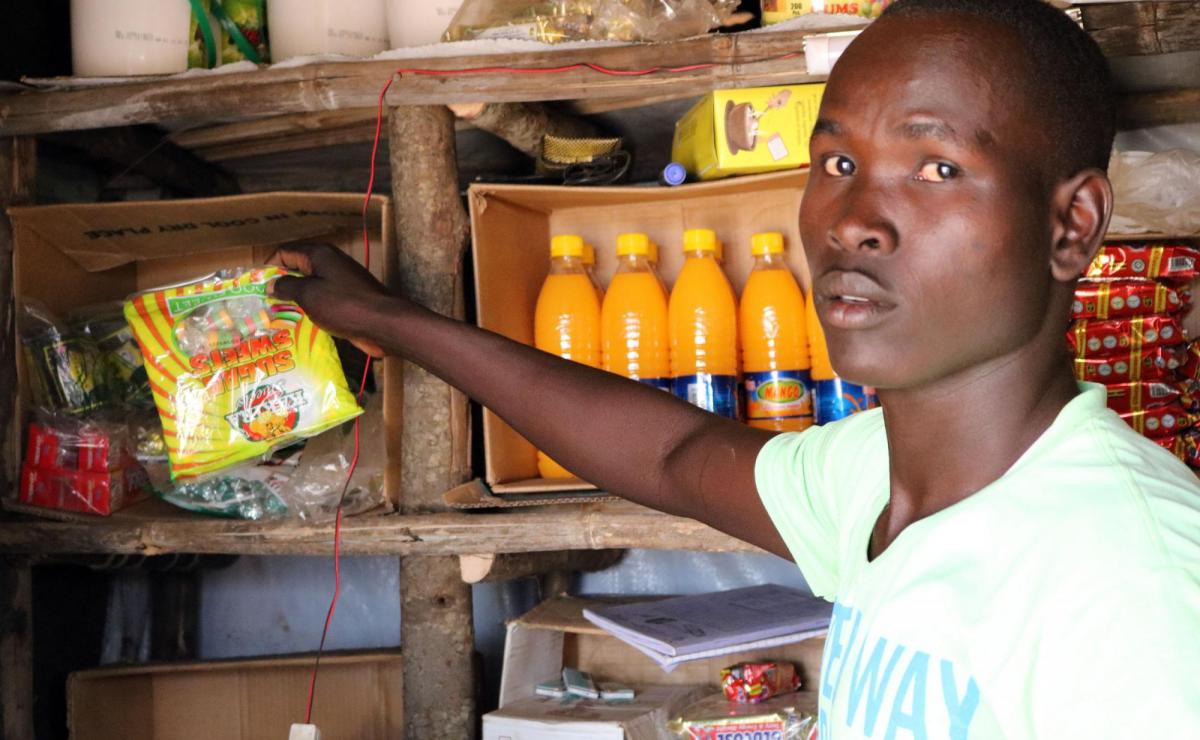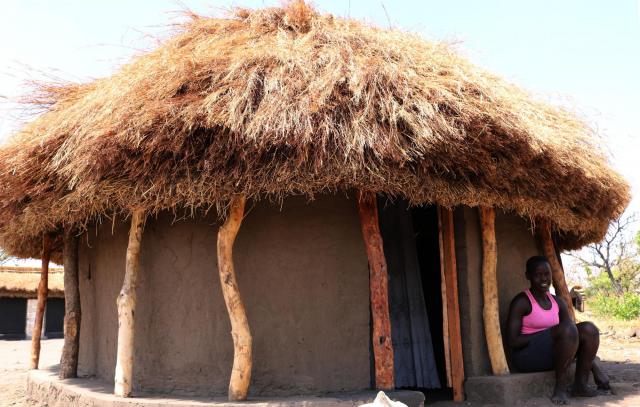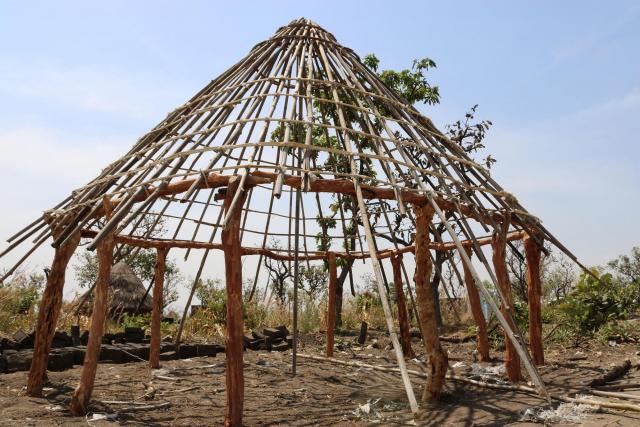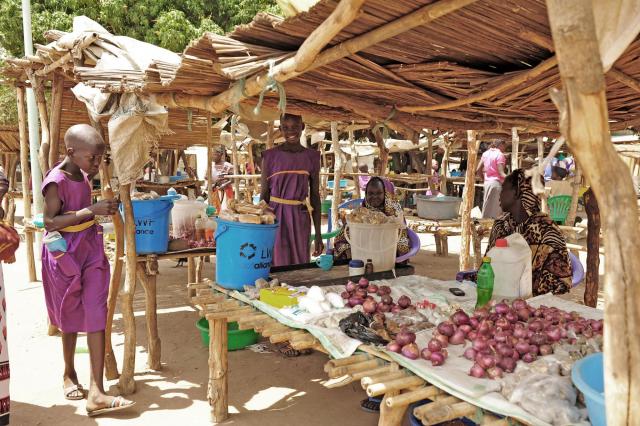Meet the “mogul” with the only retail shop in “New York”

Usually saying you 'learned from the best' is hyperbole, but not for Franco Okot. The 25-year-old South Sudanese refugee in Palabek settlement started his business career in 2017 after undertaking a training in business and VSLA management funded by the Lutheran World Federation (LWF).
Being a survivor of extreme violence, Okot was one of the 643 refugees who were identified by LWF for support in livelihoods for self-sustenance and sustainable development. “I was trained in business planning and management, record keeping and saving by the best tutors from LWF. I was also offered UGX 1,000,000 to establish a business.”
Okot describes the training as inspirational, “After the training, I decided to put my broken pieces behind and establish the only retail shop in Zone 1 alias New York.” There are over 236 households in New York hence ready market for Okot’s goods. “I mainly sell food stuff and detergents from which I earn a minimum of UGX 300,000 in profit every month.”

Life gets better with an income
With profits from his business, Okot’s lifestyle has greatly improved as he can afford his family’s basic needs like food, medical care and clothes. “I am financially stable and independent unlike majority of the refugees in Palabek. I am one of the wealthiest men in New York which earns me respect from all the people in my community despite my young age.”
Rose Among is another cash grant beneficiary who provides for four children with profits from her food kiosk business. “I have built a house for my family, bought a bicycle my children use for transport to school and I can afford their scholastic materials.”Adds Among who earns an average of UGX 60,000 every four days. “My children never lack basics of life.”
David Oroma’s family enjoys a balanced diet and three meals a day as he earns enough from his business. “I can also afford medicine for my children whenever they fall sick.”

Sustainable income for sustainable development
A stable income facilitates saving, future financial plans and sustainable development. From his monthly profit, Okot saves at least UGX 120,000. He has saved UGX 600,000 and continues to save more to establish a whole sale store in zone 2.” “I also want to expand the one I have for more profits.” Says Okot who dreams of owning a chain of grocery stores.
Among looks forward to establishing a family owned 5-star restaurant in Kitgum district town which is 63 kilometres from Palabek settlement. “I want to establish a restaurant that will be managed by my lineage so that they don’t start from scratch while seeking means to earn a living.”
Kennedy Orach LWF’s Livelihood Officer in Palabek expounds that LWF has supported 643 individuals in Palabek settlement with training in entrepreneurship skills and cash grants. “These are currently engaging in various productive businesses for self-sustenance and sustainable development.”

Other than facilitating self-sustenance and sustainable development, Alex Ssenyondo, LWF’s Livelihood Advisor explains that the support is aimed at eradicating poverty which is a prime objective for the 2063 African Union’s Agenda and the 2030 Agenda for the Sustainable Development Goals.
Business entities are a single indicator of refugees’ efforts to eradicate poverty in their communities: The 2016 Uganda Poverty Assessment Fact Sheet indicates that “The proportion of the Ugandan population living below the national poverty line declined from 31.1% in 2006 to 19.7% in 2013.”
Ssenyondo however adds that tens of thousands of refugees in Palabek remain dependent on aid as only a few have been supported due to limited resources.
LWF’s livelihood activities in Palabek are funded by UNHCR, the Swedish International Development Cooperation Agency through Church of Sweden, the American Government through the Bureau of Population, Refugees, and Migration.

